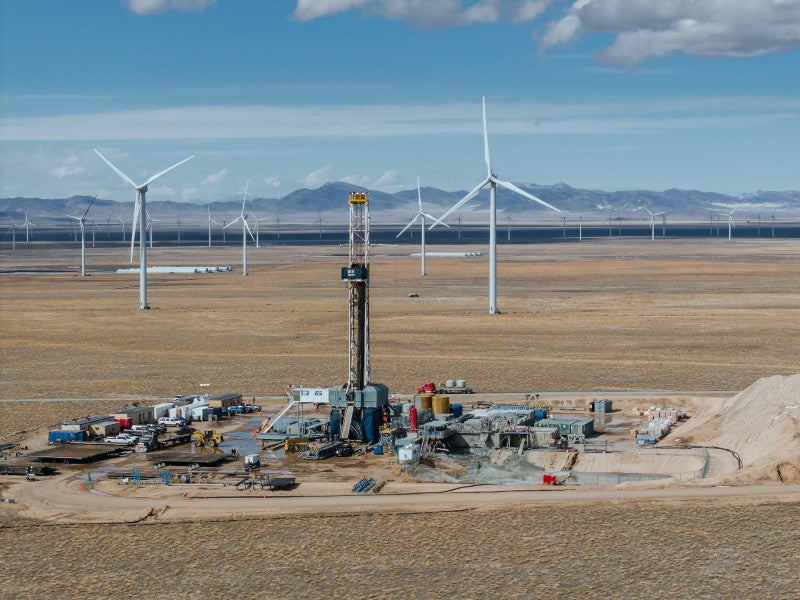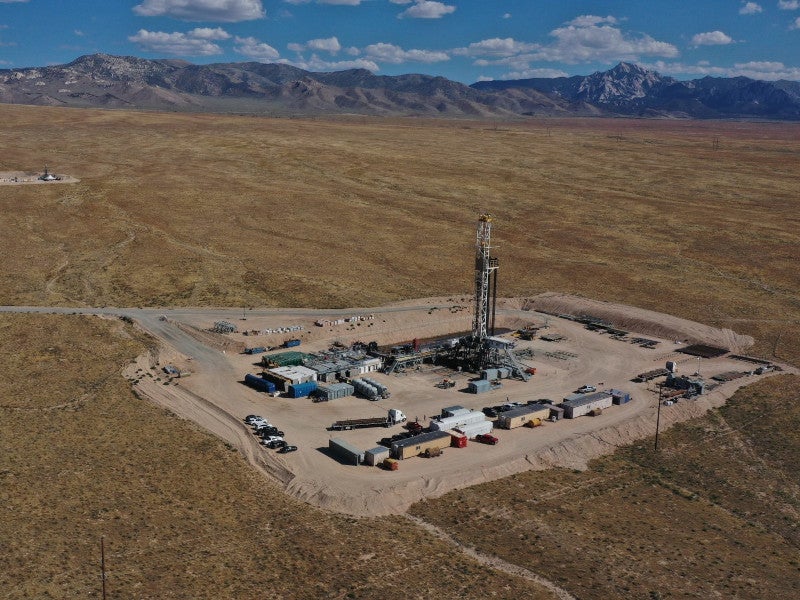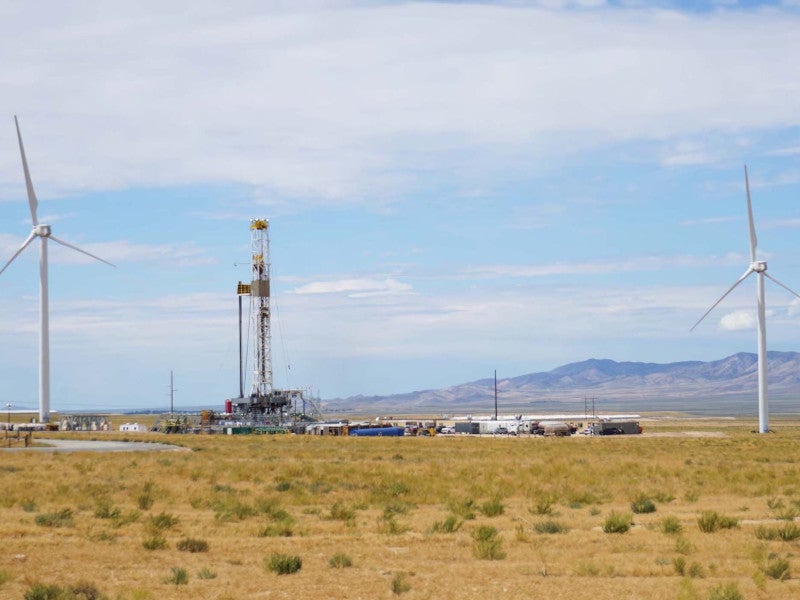The Cape Station geothermal project is a 400MW geothermal energy generation facility currently under development in Beaver County, Utah, US.
Escalante Desert Resources, a fully owned subsidiary of geothermal energy developer Fervo Energy, is spearheading the project’s construction, operation, and maintenance.
The ground-breaking ceremony to mark the start of the exploration drilling campaign at Cape Station took place in September 2023.
The initial phase of the project, with a capacity of 90MW, is set to commence power generation in 2026. The second phase is expected to be operational by 2028.
During the construction phase, the project is expected to create more than 200 temporary jobs and up to 30 permanent on-site jobs.
Project location
The geothermal project at Cape Station is positioned approximately 12 miles north-east of Milford in Beaver County, Utah.
The location benefits from reduced risk due to its proximity to existing transmission infrastructure.
Furthermore, Cape Station has access to extensive data on reservoir characteristics due to its proximity to the Department of Energy’s Frontier Observatory for Research in Geothermal Energy and the Blundell geothermal power plant.
Cape Station geothermal project details
The Cape Station geothermal project involves the sequential drilling of approximately 21 horizontal and eight vertical wells to evaluate the potential of the geothermal resources in the region.
The initial phase of the Cape Station project will see the installation of three generators equipped with six Organic Rankine Cycle (ORC) turbines.
The construction of well pads will be phased, with one to three pads being developed at a time before the commencement of drilling operations.
Each pad is expected to cover an area of 400ft by 600ft, equating to about 5.51 acres, with an additional 25ft around the perimeter for the storage of topsoil and other materials.
The overall disturbance area will be 450ft by 650ft or approximately 6.7 acres per pad.
The total surface disruption anticipated from the construction of new well pads is estimated to be around 193.7 acres, considering 6.7 acres for each of the 29 pads.
Each pad will feature a reserve pit for the temporary storage of water, drill cuttings, and drilling fluids. These pits will be established following industry best practices.
Turbine details
The ORC system utilises a pioneering closed thermodynamic cycle that is adept at producing both electric and thermal power in a flexible and distributed manner.
Turbogenerators in the system transform thermal energy into electrical power without relying on water or steam.
The turbine is designed to operate effectively across a range of sizes, from small to medium and up to 40MW per single shaft.
ORC technology is designed to capture and convert residual heat into electrical power through specially crafted turbines.
These ORC turbogenerators offer a versatile and efficient means to harness a broad spectrum of thermal sources, including both renewable and nonrenewable.
The ORC turbines utilise organic fluids with advantageous thermodynamic properties for power generation.
This allows for the effective use of low-to-medium temperature heat sources, which would otherwise be wasted.
Financing
XRL-ALC (XRA), a subsidiary of X-Caliber Rural Capital secured a bridge loan of $100m to facilitate the initial phase of the Cape Station geothermal project. XRA offers conventional construction financing for commercial real estate and infrastructure projects in micro-rural areas.
XRA dedicated $65m to the development of the subsurface elements of the project, which includes drilling geothermal wells, constructing pads and roads, and establishing the necessary infrastructure.
An additional $35m is earmarked for the development of surface facilities such as the construction of power plants and the installation of systems for energy collection and distribution.
The US Department of Energy confirmed its commitment to invest in three innovative power projects, including the Cape Station geothermal project.
These projects are collectively set to benefit from an investment of up to $60m, aimed at demonstrating the potential and expandability of Enhanced Geothermal Systems.
Fervo Energy also raised $244m in a funding round spearheaded by Devon Energy, a leading oil and gas company. The investors included Galvanize Climate Solutions, John Arnold, Liberty Mutual Investments, Marunouchi Innovation Partners and Mercuria.
Also joining the round were Mitsubishi Heavy Industries alongside existing investors Capricorn’s Technology Impact Fund, Congruent Ventures, DCVC, Elemental Excelerator, Helmerich & Payne, and Impact Science Ventures.
Power purchase agreement
Two power purchase agreements totalling 320MW were executed with Southern California Edison, one of America’s largest utilities for a period of 15 years each.
Fervo Energy also contracted 53MW of power from Cape Station for California community choice aggregators.
Contractors involved
Turboden renowned for its expertise in ORC systems announced an innovative collaboration with Fervo Energy in April 2024 to provide engineering and procurement of power plant equipment for the Cape Station geothermal project.




